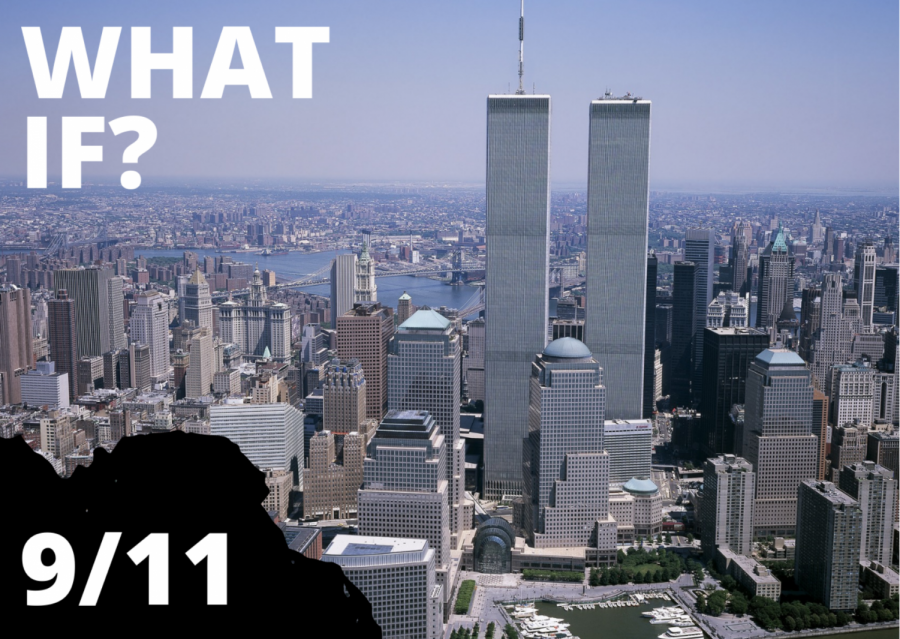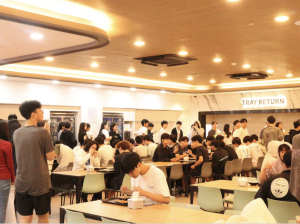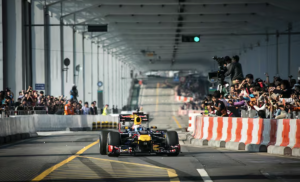What if: 9/11 never happened?
Sep 30, 2021
On the morning of Sept. 11, 2001, 19 al Qaeda militants did the unthinkable, hijacking four American passenger airliners and carrying out the deadliest terrorist attack on US soil. Within minutes after taking off, two planes crashed into the World Trade Center at subsonic speeds, sending debris into the air and reducing the towers into rubble.
This year marks the 20th anniversary of the deadly attacks that left nearly 3,000 people dead and forever changed US history in the wake of the 21st century. As the nation stood in solidarity and paid tribute to those who lost their lives, memories from the fateful day remained seared in the minds of many who lived through the tragedy. What if 9/11 never happened?
It is no question that the events following 9/11 forever changed our lives. Not long after the attacks, feelings of sadness, anger, and patriotism swept through the nation. The US soon plunged itself into the Middle East, invading Iraq and declaring war in Afghanistan. Intended to oust the Taliban from the Afghan government and prohibit the militant group from enforcing its twisted interpretation of Islamic law, the conflict in Afghanistan became America’s longest war.
Without 9/11, the US would not have engaged in a full-fledged war against terrorist groups in the Middle East. This means that the Taliban may have stayed in power after seizing control of Kabul in 1996. Further, trillions of dollars poured into the war in Afghanistan would have been spent elsewhere, possibly on the development of military weaponry in the Pacific against countries such as China.
Anti-terrorism efforts would have only taken place in the form of sporadic attacks through the use of drones and special forces. The war on Iraq may not have taken place, but cruise missiles may have continued to be used to target Saddam Hussein. Additionally, ISIS-K, a terrorist group that emerged as a rival to the Taliban during America’s military presence in Afghanistan, would not have been formed, and the deaths for which it claimed responsibility would not have occurred.
Perhaps the greatest change after the 9/11 attacks was the deepening divisions within US politics. Initially, Americans united, praying and mourning for loved ones. The entire country demanded answers, looking for both a motive and those responsible for the attacks. When Americans quickly learned that Osama Bin Laden, founder of the Islamic-affiliated al-Qaeda terrorist group, was responsible for the carnage on 9/11, they sought justice. But just as the US seemed to live up to its name, the feeling of unity proved to be short-lived.
Not long after the attacks on 9/11, anti-Muslim sentiments became widespread. Muslim Americans were labeled as terrorists, and hate crimes against them grew increasingly violent. Politicians, including President George W. Bush, condemned Americans for holding all Muslims accountable for the terrorist attacks, yet sentiments remained.
In the decades that followed, GOP candidates such as Donald Trump used anti-Muslim rhetoric to leverage their position during presidential elections. During his presidency, Trump’s Muslim ban sparked massive protests, all of which may not have happened without 9/11.
Meanwhile, Democrats, namely Barack Obama, spoke against Islamophobic attacks, calling Islam a religion of peace. Political dissent surrounding Muslim rhetoric showed the increasing divide that the US underwent after 2001.
Today, America is more divided than ever after 9/11, according to a 2020 census. The effects of such divisions in the US have reverberated throughout recent years, resulting in avoidable catastrophes. Earlier this year, divisions within US politics culminated in the riot on Jan 6. 2021, in which thousands of far-right Trump supporters stormed the nation’s Capitol building to protest the results of the 2020 presidential election.
All of this is not to say that the attacks on 9/11 directly led to the attack on the Capitol. However, the increase in partisanship after 9/11, particularly around issues of anti-Muslim sentiments, contributed to the rise in extremist ideologies that fueled acts of domestic terrorism.
The world will never know whether the US would have been more united had it not been for the attacks on 9/11, but global issues, such as the ongoing COVID-19 pandemic, may not have become so politicized. With the pandemic continuing to rage on, the lack of bipartisan support for COVID-19 policies has cost the lives of thousands—and the pandemic is far from over.
For now, unity between the political parties may only take place once every year on Sept. 11 to honor the victims and heroes whose lives were cut short in 2001.







